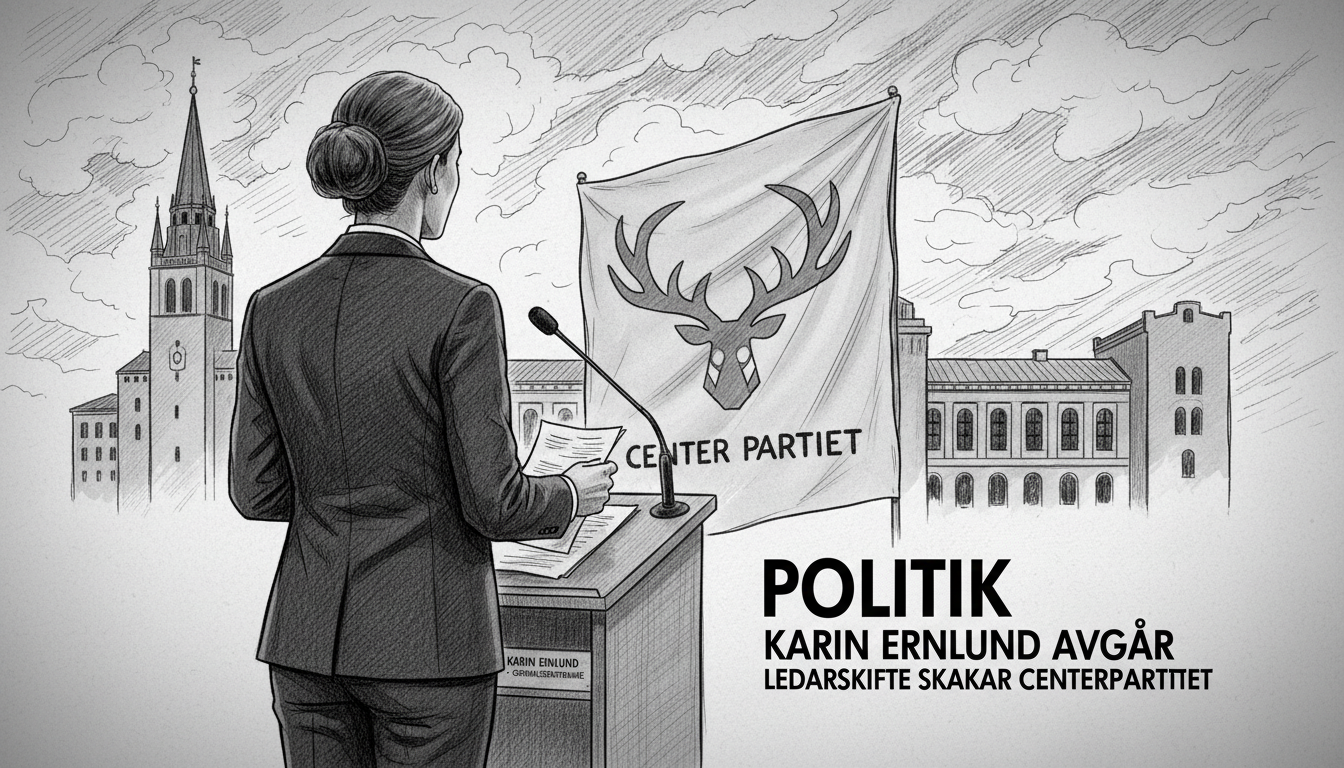Karin Ernlund announced her resignation as Secretary General of Sweden's Center Party. She made the announcement on social media, stating the time had come for her to pursue other opportunities. This marks another leadership change for the party during a turbulent period in Swedish politics.
Ernlund wrote on Instagram that she recently turned 40 and the party had selected a new leader. She felt this created the right moment for her own transition. The party will hold a press conference to provide additional details about the leadership change.
The resignation comes just one week after Elisabeth Thand Ringqvist became the party's new leader. She replaced Anna-Karin Hatt, who stepped down unexpectedly. The Center Party now faces the challenge of filling two key leadership positions simultaneously.
Ernlund has held various positions within the Center Party since 2009. She served as press secretary and as a city councilor in Stockholm. The party elected her as Secretary General in 2023 under former party leader Muharrem Demirok.
Swedish political parties typically maintain stability in their secretary general positions. These roles handle daily operations and organizational management. Frequent changes can disrupt party continuity and effectiveness.
The Center Party has experienced several leadership transitions recently. This instability reflects broader challenges facing centrist parties in Nordic politics. They struggle to maintain relevance amid growing polarization between left and right blocs.
International observers should note that Swedish party secretary generals wield substantial influence. They manage party organizations, election campaigns, and internal coordination. Losing an experienced secretary general could impact the party's operational capacity.
What does this mean for Sweden's political landscape? The Center Party traditionally appealed to rural voters and focused on environmental issues. Recent leadership changes suggest ongoing internal debates about party direction and strategy.
The timing is particularly significant with local elections approaching. Parties need stable leadership to campaign effectively. The Center Party must quickly establish new leadership to maintain its political position.
This resignation follows a pattern of instability in Nordic center-right politics. Similar parties in Norway and Denmark have also faced leadership challenges. The trend indicates shifting political alignments across Scandinavia.
The party's ability to manage this transition will test its organizational strength. Swedish voters typically prefer stable, predictable political parties. Extended internal turmoil could damage the Center Party's credibility and electoral prospects.

